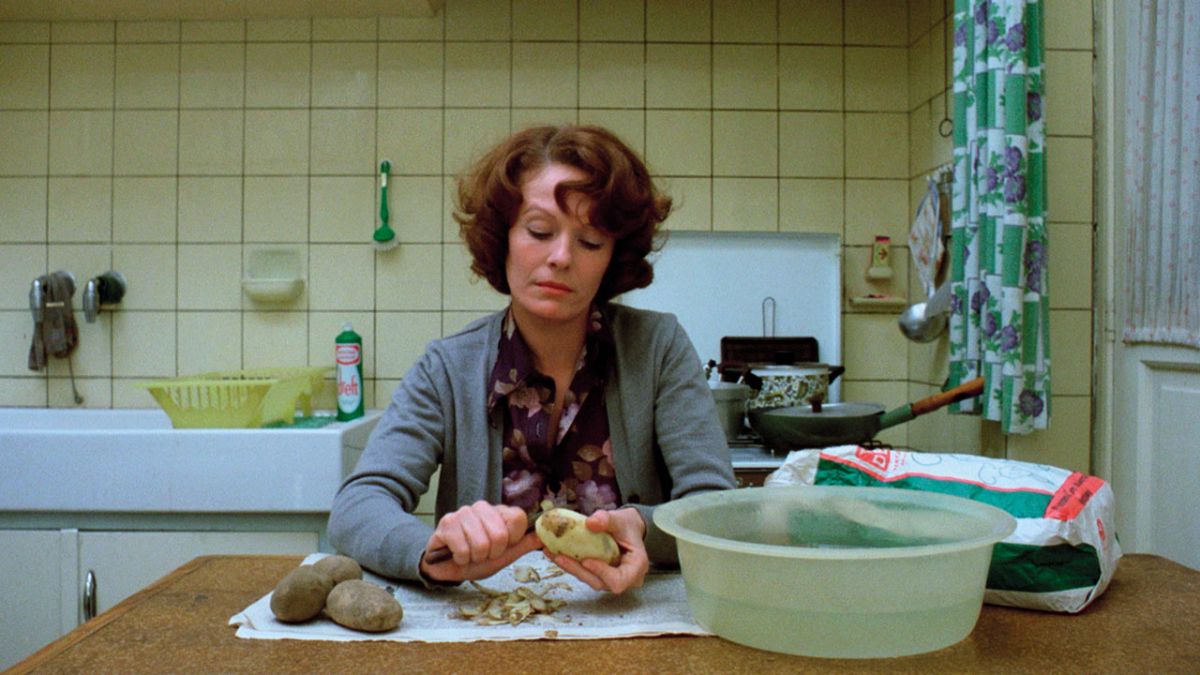Jeanne Dielman at HOME review: The greatest film of all time?

Jeanne Dielman, 23, quai du Commerce, 1080 Bruxelles (1975) is Belgian director Chantel Akerman’s 200-minute-long slow cinema masterpiece, showing us the day-to-day life of the titular Jeanne Dielman (Delphine Seyrig) – a widowed housewife – as she does chores, looks after her son, and works as a prostitute to make ends meet.
Jeanne Dielman was voted by critics as the best film of all time, in 2022’s decadal installment of Sight and Sound magazine’s Greatest Films of All Time list, becoming the fourth film to achieve this feat and the first directed by a woman. Because of this, and the fact that it was International Women’s Day, HOME cinema screened Jeanne Dielman, and although I had already seen it, I had to watch it on the big screen.
Jeanne Dielman is a film that can be characterised by its creation and management of audience expectations.
It follows a loose three-act structure, with the film being split into three days, but you only see the evening of the first day, showing Jeanne seeing a client, bathing, preparing dinner, etc.. The evening goes so seamlessly that you assume Jeanne has her daily routine down to a tee. This makes you assume that the errands she runs on the morning of the second day are the rest of her meticulous routine. Therefore, when things start to go wrong on the evening of the second day and the morning of the third day, you know how they are supposed to go, which makes the unintentional deviations from the routine all the more shocking.
Akerman’s attention to detail, the static camera angles, and the in-depth sound design make these slip-ups apparent. Jeanne, in an incredibly subtle performance from Seyrig, is visibly trying to keep herself together.
You may look at my summary of the plot of Jeanne Dielman and the runtime, and think that the film is boring or pretentious or prioritizing artistry over entertainment to the absolute extreme. It really isn’t any of these things.
I found myself so engaged in the chores Jeanne was doing, and the complete lack of any excitement elsewhere made me feel as though I was almost watching a horror film at times: when the camera lingers after she’s moved off-screen you crave the release from this static nothingness into action almost like you want the camera to cut from a dark corridor in a horror film because you don’t want to see what could be down it.
The lack of a traditional plot and the excruciating showing of every little thing Jeanne does with her days has a great deal of thematic potency behind it. The phrase “a woman’s work is never done” comes to mind, as Akerman highlights the lack of recognition given to homemakers and single mothers, despite the undeniable amount of effort that goes into it.
This is done through the relationship between Jeanne and her son, Sylvain (Jan Decorte), who is largely ambivalent towards her, and often ignores attempts she makes at engaging him in conversation. Also, through experiencing Jeanne’s daily routine practically beat-for-beat, you gain a greater appreciation for these mundane tasks.
Jeanne Dielman may seem intimidating with its lack of a plot and long runtime, but it is one of the most important films ever made, and there is still more than enough to sink your teeth into to make it an entertaining watch.
Chantal Akerman makes these painstaking chores strangely exciting, and the pacing of the film, while slow, makes the eventual payoff one of the most cathartic I have ever experienced. Every minute you invest into this film is well worth it and while I wouldn’t have voted for it as my #1 greatest film of all time, I wouldn’t object to anyone calling it that.
5/5.
Jeanne Dielman is available on the BFI Player channel on Amazon Prime.







